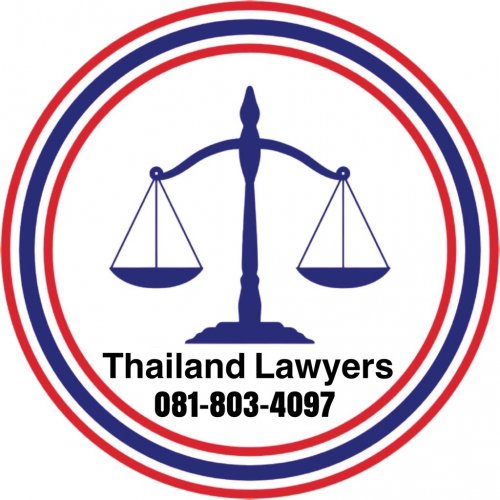Best Divorce & Separation Lawyers in Khon Kaen
Share your needs with us, get contacted by law firms.
Free. Takes 2 min.
Free Guide to Hiring a Family Lawyer
List of the best lawyers in Khon Kaen, Thailand
Thailand Divorce & Separation Legal Questions answered by Lawyers
Browse our 10 legal questions about Divorce & Separation in Thailand and read the lawyer answers, or ask your own questions for free.
- Divorce document
- Hi I need a simple uncontested divorce settlement agreement written up. It's very simple 1. I keep my condo 100 percent as was pre marital. 2. She can live my condo rent and maintenance free for two years from date of divorce. 3. We don't owe each other any money.... Read more →
-
Lawyer answer by KSN Bangkok Co., Ltd.
Hi, we can certainly assist you with drafting a simple uncontested divorce settlement agreement, based on the terms you’ve outlined. Our fee for this service starts from THB 20,000, depending on the complexity and any additional legal details that may...
Read full answer - Moving out of the house before a divorce trial
- Can I move out of my wife's house before a divorce trial ?
-
Lawyer answer by GPS Legal
GPS Legal has extensive experience in Family Law and matters of divorce. While we would want to better understand the details behind the question, the basic answer is yes you can move out of your wife’s house before a divorce...
Read full answer - Divorce
- Can I divorce my Thai wife without her help,it's uncontested,no claims
-
Lawyer answer by Mahanakorn Partners Group Co., Ltd
Dear Sir,Thank you for reaching out to us with your inquiry regarding divorce in Thailand. We appreciate your trust in our expertise, and we would be delighted to assist you on the matter.In Thailand, uncontested divorces, where both parties are...
Read full answer
Thailand Divorce & Separation Legal Articles
Browse our 3 legal articles about Divorce & Separation in Thailand written by expert lawyers.
- How to Protect Your Property After Going Through a Divorce in Thailand
- Understanding how to protect your assets and the laws surrounding divorce is vital as a foreigner in Thailand because in the event of a separation from your Thai spouse, you are going in at a disadvantage. Thai law typically favors Thai nationals over foreigners, so having the right knowledge and... Read more →
- How To Get Divorced In Thailand
- Divorce is a major legal process in Thailand comprising several steps. It requires meticulous documentation and adherence to strict laws and often involves complex grounds.There are two types of divorce in Thailand: uncontested and contested divorce.What is an Uncontested Divorce?An uncontested divorce is also known as an “administrative divorce.” This... Read more →
- How to Find a Divorce Lawyer in Thailand
- Divorce is a difficult and emotionally taxing procedure that may be made even more difficult when it takes place abroad, such as may be the case in Thailand. Anyone may feel overwhelmed by the legal complexities, cultural variances, and other divorce-related issues. But with the right assistance, you may locate... Read more →
About Divorce & Separation Law in Khon Kaen, Thailand
Divorce and separation in Khon Kaen, Thailand, occur under the legal framework set by Thai family law, which grants rights and responsibilities to both parties. The legal process can be amicable or contentious, involving agreements on child custody, property division, and sometimes alimony. Khon Kaen, like other regions in Thailand, follows a consistent set of procedures under the Civil and Commercial Code, ensuring the process is legally upheld and fair to both parties.
Why You May Need a Lawyer
There are several reasons why you may require legal assistance in the context of divorce and separation in Khon Kaen:
Complex Property Division: Lawyers can help in fair division of shared assets and debts.
Child Custody and Support: Determining child custody and support requires legal guidance to ensure the child's best interests.
Alimony Issues: Legal advice is vital in negotiating or contesting alimony.
Mediation and Negotiation: Lawyers can help mediate and negotiate terms between parties to avoid contention.
Legal Documentation: Ensuring all paperwork is correctly drafted and filed reduces the chance of future disputes.
Local Laws Overview
Divorce and separation laws in Khon Kaen, like other parts of Thailand, revolve around the provisions found in the Thai Civil and Commercial Code. Key points include:
Grounds for Divorce: Divorce can be granted on several grounds such as adultery, desertion, or irreconcilable differences.
Types of Divorce: Divorces can be categorized into consent-based, where both parties agree, or contested, where the decision is made by the court.
Child Custody: Parents are encouraged to reach a mutual agreement, otherwise, the court decides based on the child’s welfare.
Maintenance and Alimony: Determined based on the length of marriage, financial status, and the couple’s agreement or court's ruling.
Property Division: Governed by community property laws, where assets acquired during marriage are subject to division.
Frequently Asked Questions
What are the requirements for filing for a divorce in Khon Kaen?
You must have a valid ground for divorce as stipulated under Thai law, and either consent by both parties for an uncontested divorce or evidence of grounds for a contested divorce.
How long does the divorce process take in Khon Kaen?
The timeline varies depending on whether it is a mutual consent divorce, which can be settled quickly, or a contested divorce, which could take several months.
Can a foreigner divorce a Thai national in Khon Kaen?
Yes, foreigners can divorce Thai nationals. The process generally follows the same legal requirements but may involve additional considerations such as language and validation of foreign documents.
What happens if my spouse refuses to divorce?
If one spouse refuses, the other may still file for a contested divorce if there are valid legal grounds.
Do both parties need to be present for the divorce process?
For a consent divorce, usually both parties need to be present to sign documents. A contested divorce may require more extensive court participation.
How is child custody determined in a divorce case?
Court's primary concern is the child's best interest. If parents cannot agree, the court will decide based on various factors including the child's welfare.
Can divorce orders from Khon Kaen be enforced internationally?
While divorce orders are recognized in Thailand, enforcing them internationally is subject to the law of the other country and may require additional legal steps.
Are prenuptial agreements recognized in Khon Kaen?
Yes, prenuptial agreements are recognized if they are written, agreed upon before marriage, and registered according to Thai legal requirements.
What is considered marital property in Khon Kaen?
Marital property includes assets acquired during the marriage, regardless of whose name they are registered in, and is subject to division.
What legal costs are involved in a divorce in Khon Kaen?
Costs vary based on lawyer fees, court fees, and the complexity of the case. It's advisable to discuss estimates with a legal expert upfront.
Additional Resources
For further assistance, consider contacting the following resources:
Khon Kaen District Court: For details on court proceedings and legal documentation.
Ministry of Justice, Thailand: They provide guidelines and advisory on family law procedures.
Thai Lawyers Council: For referrals to qualified family law attorneys.
Next Steps
If you need legal assistance with divorce and separation in Khon Kaen, start by consulting with a qualified lawyer experienced in Thai family law. Gather necessary documents such as marriage certificates, identification, and financial records. An initial consultation can provide you with a clearer understanding of your legal position and the potential pathways to amicably resolve the separation or divorce process. Taking well-informed steps early can smooth out what might otherwise be a challenging process.
Lawzana helps you find the best lawyers and law firms in Khon Kaen through a curated and pre-screened list of qualified legal professionals. Our platform offers rankings and detailed profiles of attorneys and law firms, allowing you to compare based on practice areas, including Divorce & Separation, experience, and client feedback.
Each profile includes a description of the firm's areas of practice, client reviews, team members and partners, year of establishment, spoken languages, office locations, contact information, social media presence, and any published articles or resources. Most firms on our platform speak English and are experienced in both local and international legal matters.
Get a quote from top-rated law firms in Khon Kaen, Thailand — quickly, securely, and without unnecessary hassle.
Disclaimer:
The information provided on this page is for general informational purposes only and does not constitute legal advice. While we strive to ensure the accuracy and relevance of the content, legal information may change over time, and interpretations of the law can vary. You should always consult with a qualified legal professional for advice specific to your situation.
We disclaim all liability for actions taken or not taken based on the content of this page. If you believe any information is incorrect or outdated, please contact us, and we will review and update it where appropriate.









